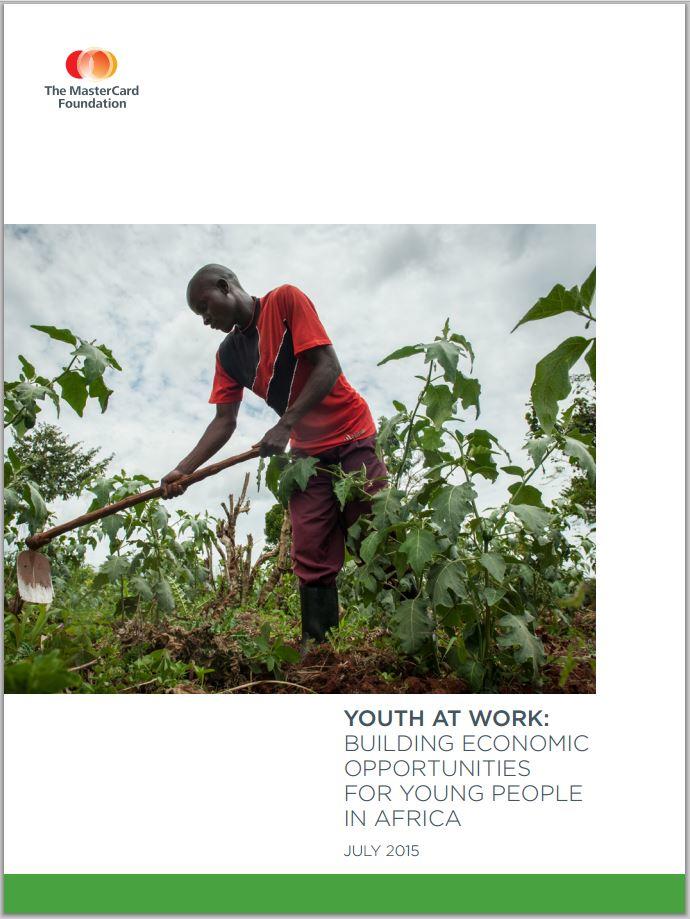
What We’re Learning: Economic Opportunities for Young People
Today we are releasing Youth at Work: Building Economic Opportunities for Young People in Africa – a review of our skills training projects for young people in Sub-Saharan Africa. When we began this process with the support of E.T. Jackson and Associates, we saw an opportunity to review the factors that have contributed to the results of our projects, what lessons we’ve learned – and what opportunities exist for deepening and strengthening programs to better meet young people’s needs.
For the vast majority of youth, “mixed livelihoods” too often result in barely subsistence wages, and with little protection and security. The MasterCard Foundation’s programs have sought to address these issues by pushing forward more holistic, comprehensive training programs, which offer a combination of training for market-relevant skills, the connection to stable jobs or more productive self-employment opportunities, and development of fundamental life skills, including appropriate financial education and services.
In exploring the environments in which our programs operate, we’ve highlighted:
- The effectiveness of holistic models that build both “hard” and “soft” skills;
- The importance of understanding which sectors of the economy have the most potential for young people;
- The need to find sustainable and cost-effective ways to deliver more of these programs at a much larger scale; and
- The need to elevate the voices and experiences of young people in the design and delivery of programs that affect them.
We’ve learned that that this work is about more than youth training. Through our projects we have achieved our targets in outreach, but we recognize there is a much larger job at hand – to demonstrate that with focused investment and greater systemic attention, young people across the African region could be part of a more inclusive economic transformation. We must make what we learn from our existing investments in this area widely shared. We must always seeks to better understand how these projects can meet young people’s diverse needs, from rural Ghana to urban Uganda. Ultimately, we believe that young people’s experiences must play a more prominent role in the decisions policy makers and practitioners are making about projects in this field. This report is intended to spark conversation about effective program and policy design, as the world takes notice of the critical importance young people are playing in Africa’s future.
Download the publication here.


